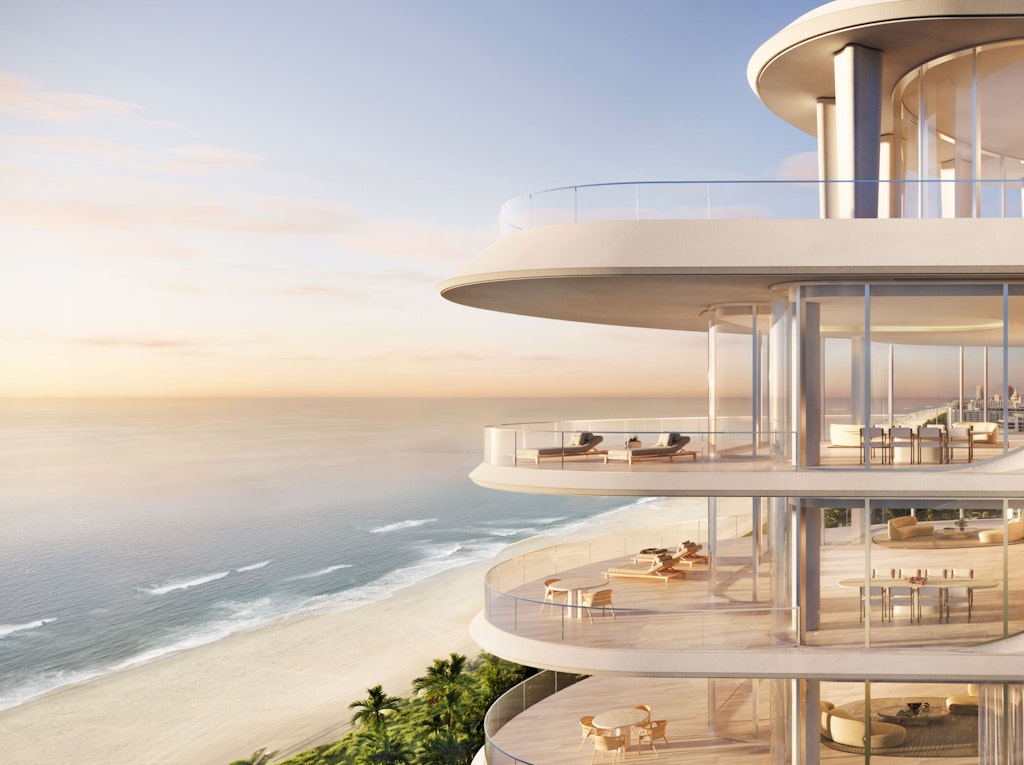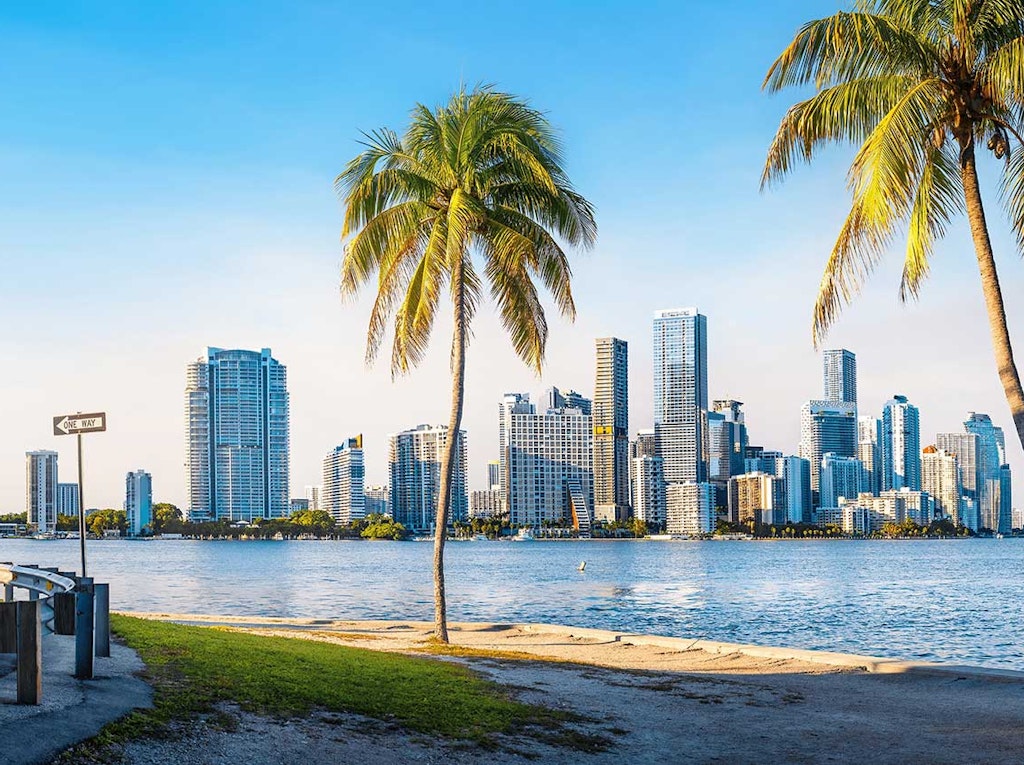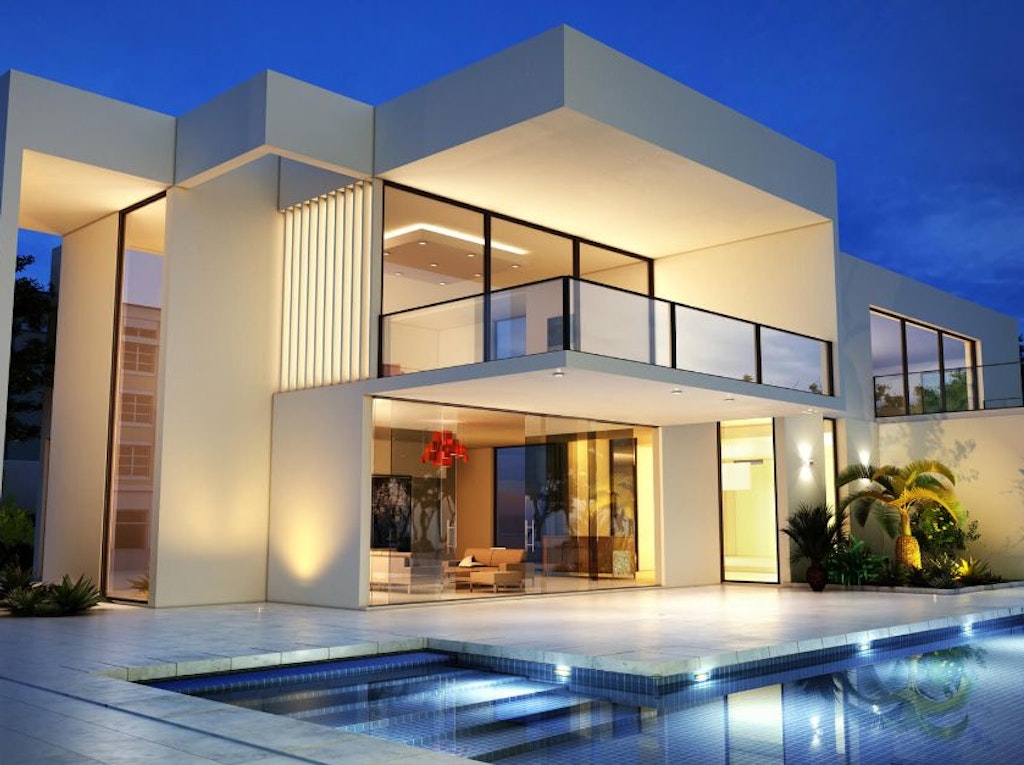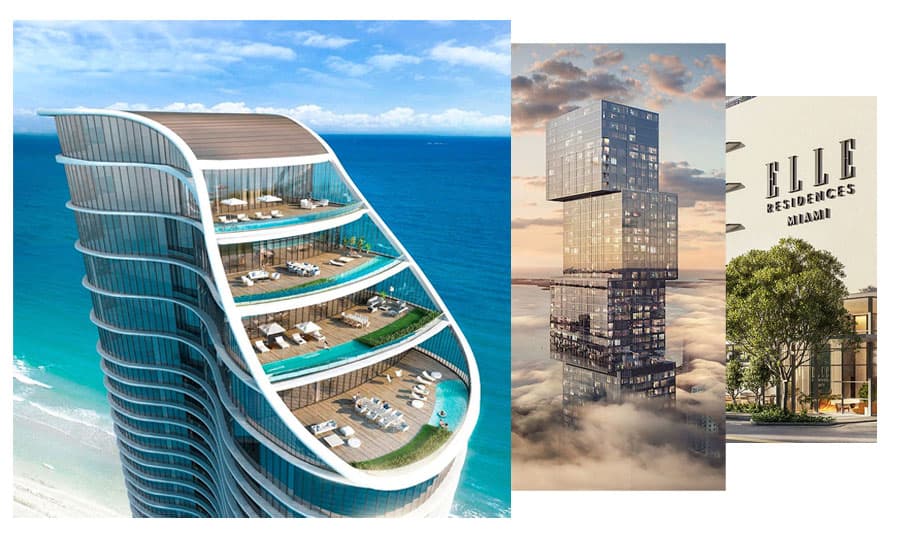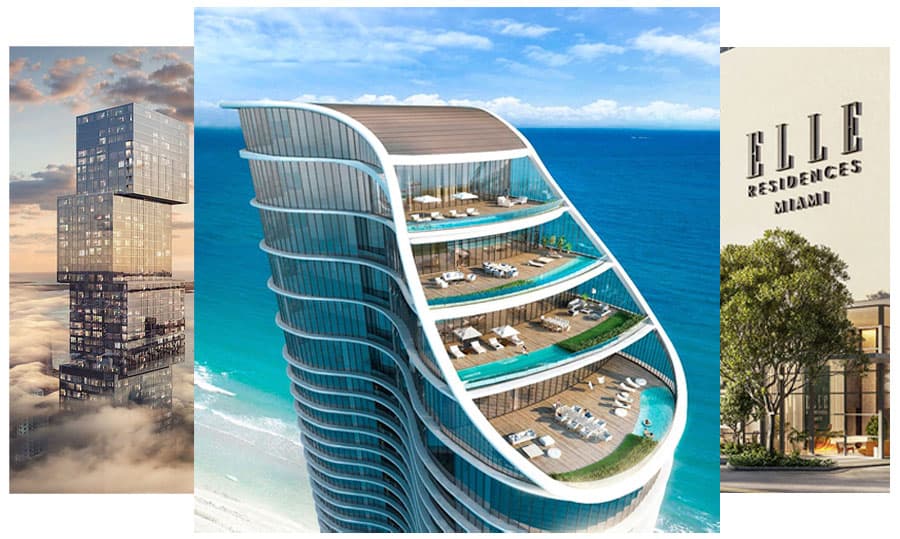
Zoning Regulations & Guidelines for Miami Pre-Construction Projects
Diving into pre-construction projects in Miami isn't just about the glitz of groundbreaking ceremonies—it's also about wading through the less glamorous, yet utterly crucial, world of zoning regulations and permits.
Although it might seem a bit tedious, understanding and complying with these rules is key.
Before you begin your journey down this seemingly complex rabbit hole, here are some of the most important things to keep in mind as you prepare to comply with local zoning laws, particularly for pre-construction apartments in Miami and new projects in Miami.
Understanding Zoning Regulations in Miami
In Miami, new projects must abide by zoning laws, which are the backbone of city planning. These laws dictate what can be built where and control the size, purpose, and placement of new constructions.
For developers eyeing pre-construction projects—from high-rise apartments to commercial hubs—familiarizing themselves with these rules isn't just helpful; it's mandatory.
Skipping this step could lead to serious headaches involving legal issues and stalled projects. For those looking into the specifics of building permits and procedures, Miami-Dade County’s official Construction and Permitting Procedures website is the go-to resource.
Getting a Zoning Verification Letter (ZVL)
A Zoning Verification Letter (ZVL) is an official document issued by the local zoning authority, in this case, the City of Miami.
This letter provides formal confirmation of the zoning classification for a specific property, which is crucial for anyone involved in real estate development, especially in pre-construction projects.
What Is a Zoning Verification Letter?
The ZVL is not just a piece of paper; it’s a cornerstone for planning and executing construction projects. It contains critical information about what can and cannot be built on a parcel of land according to current zoning laws.
For instance, it will specify whether a property is zoned for residential, commercial, or mixed-use developments and include any restrictions that apply, such as height limits, setback requirements, and density allowances.
So why is a ZVL so important for Miami’s new projects? To name a few reasons:
Compliance with Local Laws: The ZVL ensures that developers and property owners are fully aware of and comply with local zoning regulations. This compliance is essential not only for the legality of the project but also for its success and viability. Building something that doesn’t conform to zoning laws can lead to legal complications, fines, and even the demolition of completed structures.
Facilitates Planning and Development: With a ZVL, developers can plan their projects with confidence, knowing exactly what type of development is permitted. It also helps assess a project's feasibility before significant investments are made. This clarity can be particularly valuable in markets like Miami, where real estate development is highly competitive and fast-paced.
Avoids Delays: Obtaining a ZVL at the beginning of a project helps avoid delays related to non-compliance with zoning laws. Since zoning verification is a prerequisite for many other permits and approvals needed for construction, having it in place early can streamline the entire development process.
Assists in Financing and Sales: For projects requiring financing, lenders often request a ZVL to ensure the proposed development is permissible on the designated land. Similarly, potential buyers or tenants may request to see the zoning verification to confirm that the use they intend for the property is allowed.
To put it plainly, the Zoning Verification Letter is indispensable for anyone looking to develop or modify properties in Miami. It acts as a safeguard, ensuring that all developments align with municipal planning strategies and zoning ordinances, thereby supporting orderly and lawful urban growth.
Steps to Locking Down Your Miami ZVL
Getting a Zoning Verification Letter might sound complex, but it’s just part of the game.
Here's how you can tackle getting your ZVL:
Determine Your Property’s Zone: First, find out what zone your property falls into. The City of Miami makes this easy with its online zoning tools, which help you pinpoint your zone quickly.
Prepare Your Application: Once you know your zone, prepare your application for a ZVL. This typically involves specifying your project’s intentions, such as zoning designations or certificates of use, and attaching necessary documentation. Ensuring completeness and accuracy in your application is crucial to avoid delays.
Consult a Local Construction Expert: The zoning approval process can be intricate and confusing. Consulting with a local expert in pre-construction can provide invaluable guidance. These professionals understand the nuances of Miami’s zoning laws and can help streamline your application process.
Miami-Dade’s zoning approval committees often meet just once a month, any errors or omissions in your application can significantly delay your project. Engaging with a construction expert can prevent such setbacks.
Typically, getting a ZVL takes about 20 business days and costs $200 per folio. It might feel like a drag, but securing these approvals upfront will definitely save you time and trouble down the line.
The Impact of Zoning Violations on Miami Construction Projects
In Miami's bustling real estate scene, sticking to zoning and permitting rules isn't just about following the law—it's essential for the long-term success of any construction project.
Ignoring these rules can bring about some serious headaches that affect the entire lifespan of a project, no matter if it’s new office space or pre-construction apartments in Miami.
So, what are the potential consequences of Miami new projects not following zoning laws or processes?
1. Legal and Financial Penalties
If you sidestep zoning laws, you could be looking at some big-time legal trouble. This isn't just about paying fines or liens for building and zoning violations, which can get pretty steep depending on how serious the violation is.
You could also get tangled up in legal battles that drag on for months or even years, sucking up time, money and putting your project on hold.
2. Delays and Redesigns
On the topic of your project being put on hold, getting everything up to code per compliance could produce a major pause.
Often, this means going back to the drawing board, which can delay things significantly. Sometimes, you might even have to downsize your plans or shell out more cash to meet zoning requirements, which can mess with your project’s budget and potential profits.
3. Taking a Hit on Your Reputation
Getting caught up in zoning issues can really tarnish your reputation. This can make it tough to kick off future projects, secure financing, or keep up good relationships with clients and partners.
In a competitive market like Miami, a solid reputation is worth its weight in gold, and losing that can have long-lasting effects.
4. Trouble With Future Permits
If you've had zoning problems before, you might find it harder to get new permits.
Zoning boards and local authorities might be extra cautious about you, scrutinizing you and making it harder and more expensive to pursue future projects.
5. Lower Property Values
If a property is known to have zoning issues, people might think twice before investing in your pre-construction apartments in Miami.
Buyers or renters might worry about ongoing problems or not being able to use the property as they want to, which can significantly lower property value and desirability.
Following zoning and permitting rules to the letter can make your construction project go smoother, keep its value high, and save you a lot of legal and financial pain down the road. It's a crucial step that shouldn't be overlooked if you want to keep your construction plans on track and profitable.
What’s Next for Your Miami New Projects?
Understanding and complying with zoning regulations is key to the success of any pre-construction project in Miami.
Developers can ensure their projects proceed without major hurdles by taking the time to secure the necessary zoning verification letters and permits and by working with knowledgeable local experts.
If you’re planning a new construction project in Miami, understanding local zoning laws will provide a solid foundation for your endeavors.
For further details on navigating Miami’s construction and zoning requirements, connect with experienced professionals who can offer tailored advice and support throughout your project.

